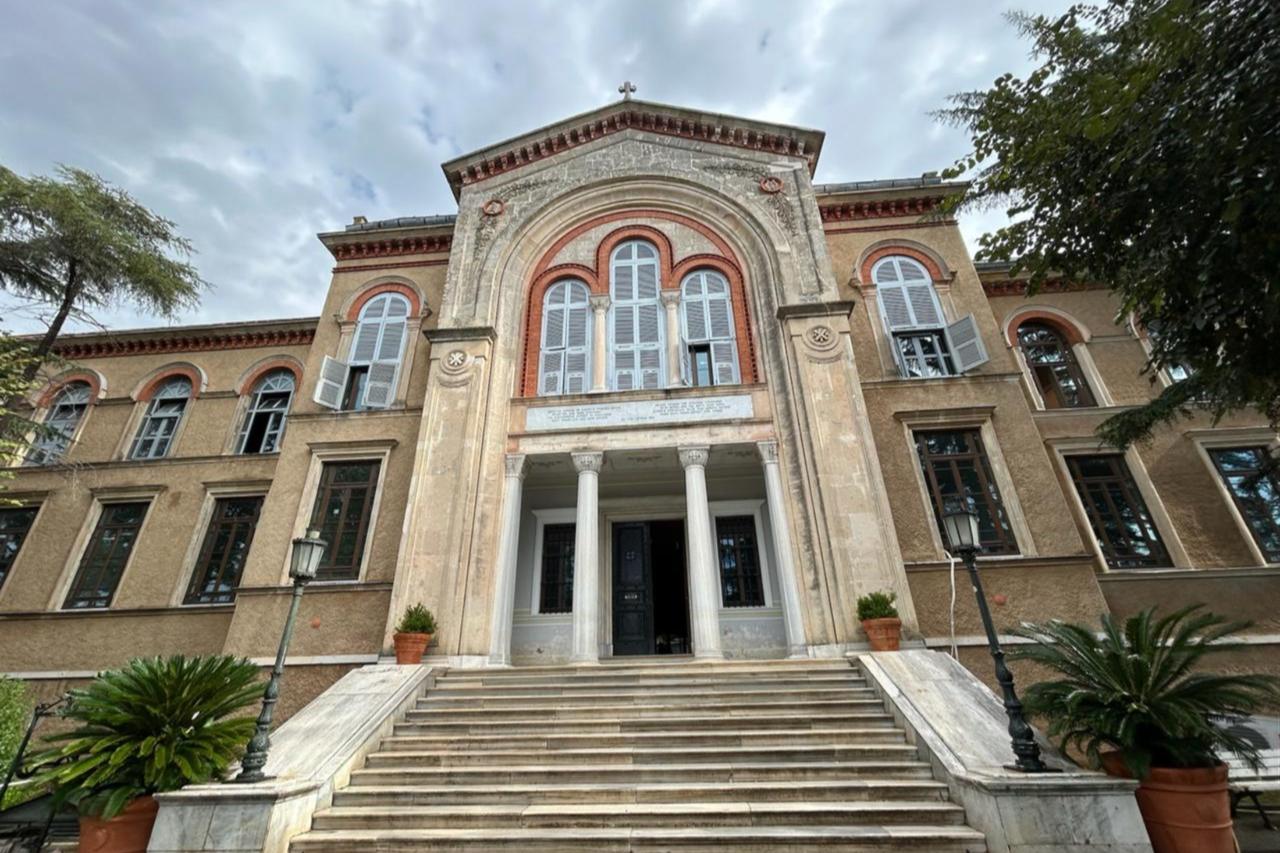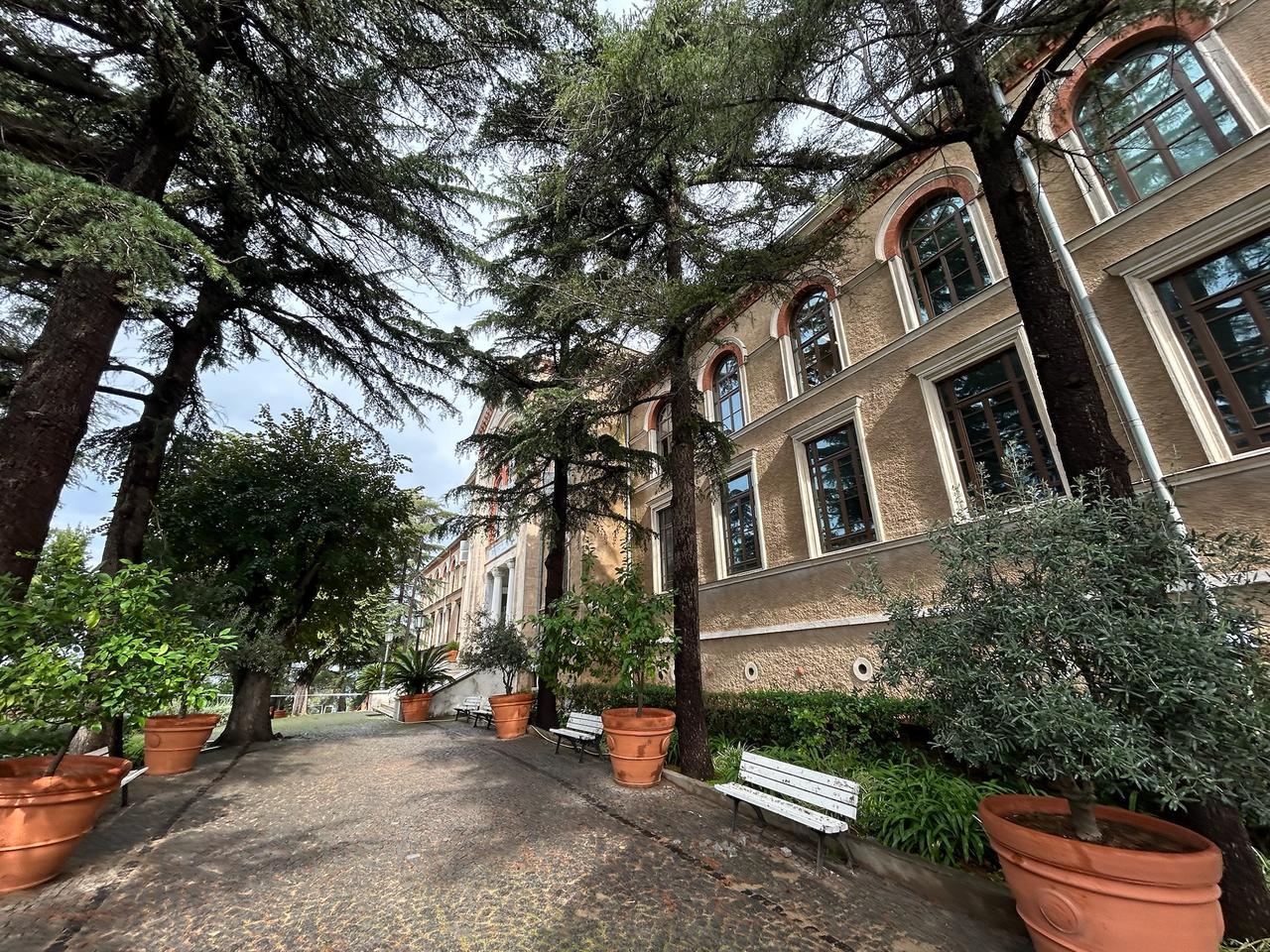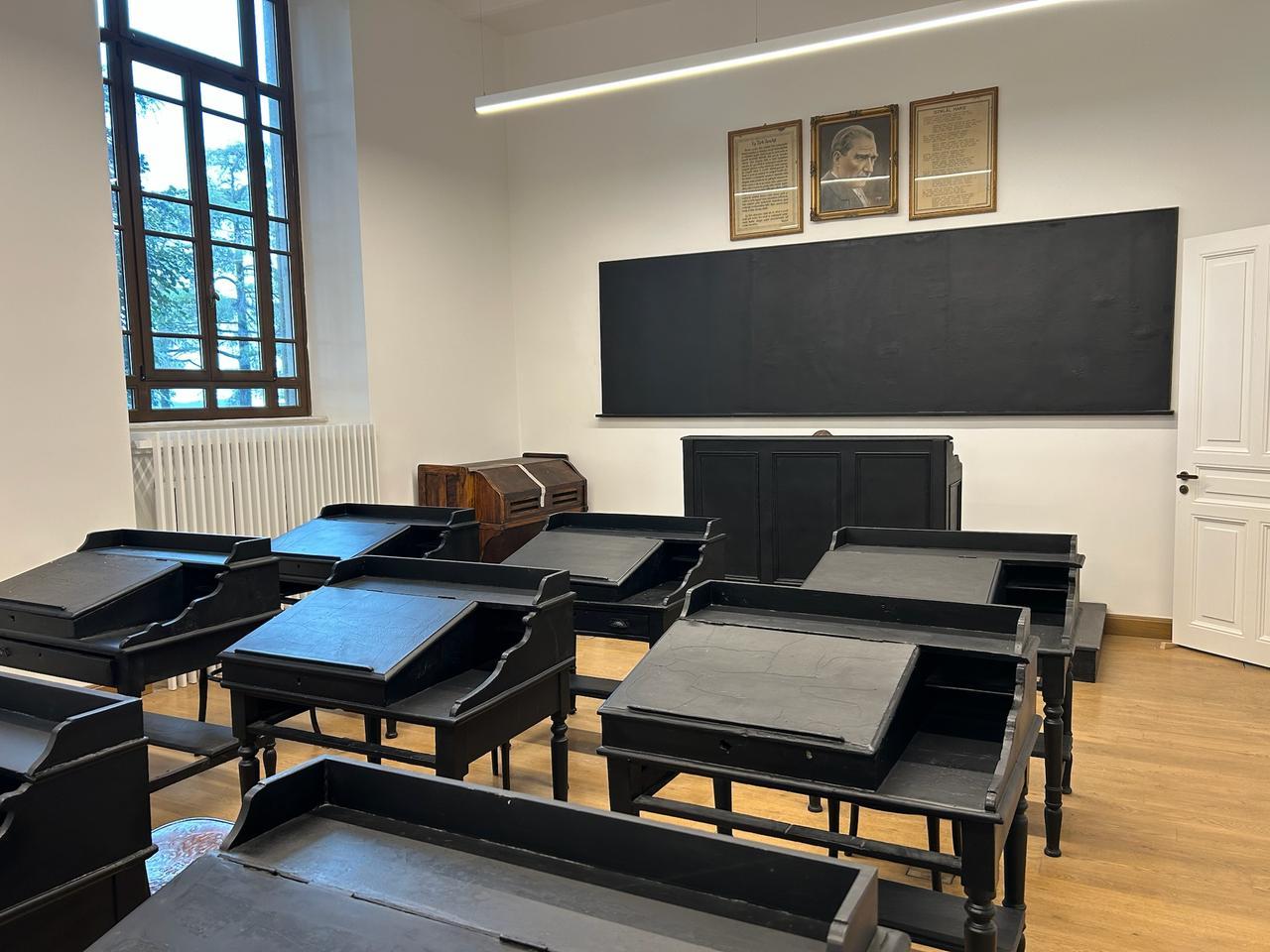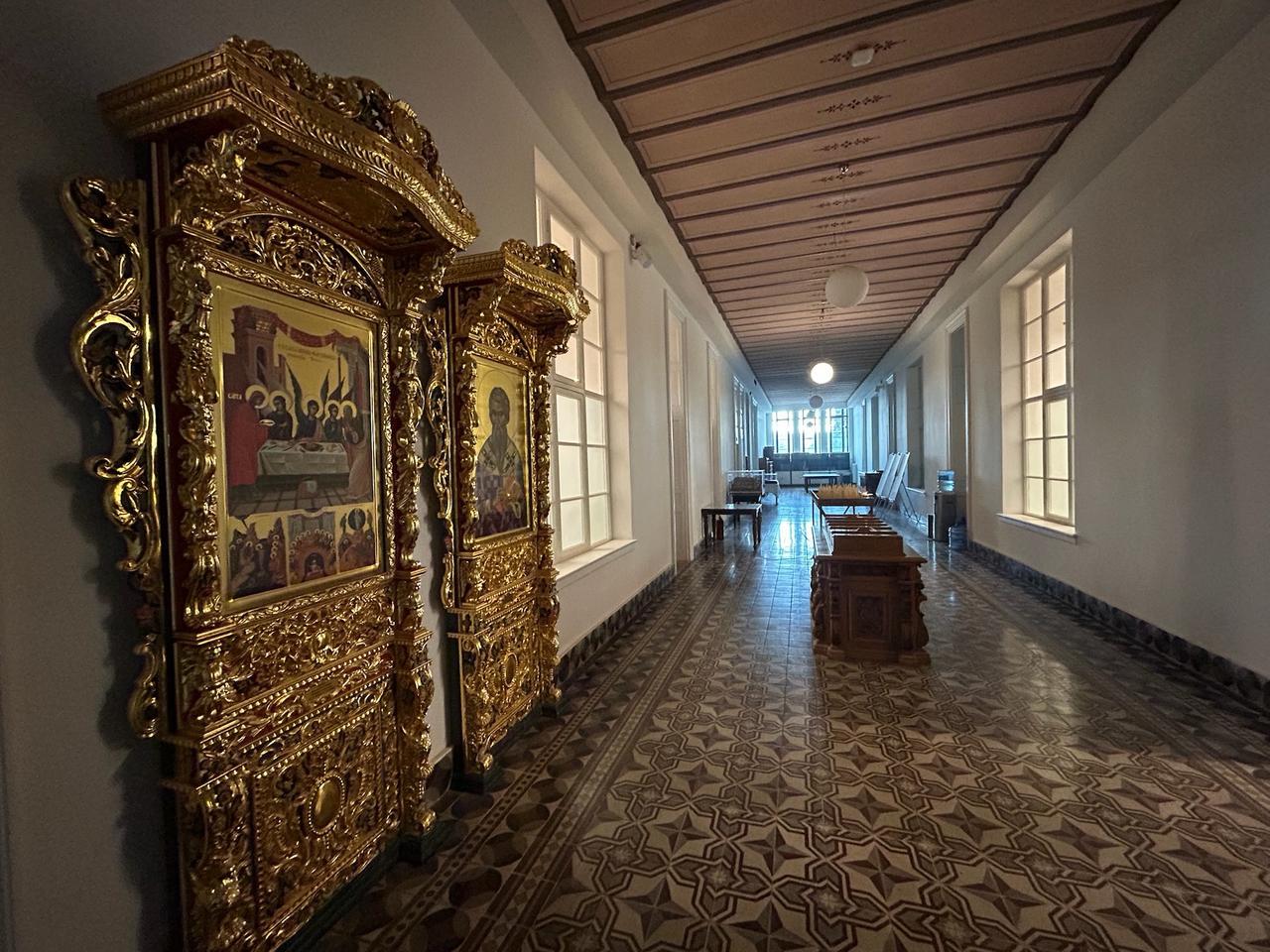
As international attention turns to Türkiye ahead of Pope Leo XIV’s landmark visit, momentum is accelerating toward the long-awaited reopening of the Halki Seminary on Heybeliada Island, one of the most significant institutions of Orthodox theological education. The seminary, shuttered since 1971, has now become a focal point for heritage preservation and academic diplomacy.
In the last weeks, Türkiye Today gained exclusive access to the monastery complex and conducted an in-depth interview with Bishop Kassianos of Aravissos, the Abbot of the Aya Triada (Holy Trinity) monastery, situated within the historic seminary grounds.
His insights, combined with international developments reported by the Associated Press, reveal growing optimism that the school may soon welcome students once again after a silence that lasted more than five decades.
Standing on Umit Hill on Heybeliada Island, the 19th-century Halki Seminary was once the intellectual heart of Orthodox theological education. From its establishment in 1844 until its closure in 1971, it graduated nearly 1,000 students, many of whom went on to become patriarchs, theologians, scholars, and spiritual leaders, including Ecumenical Patriarch Bartholomew I.
The current structure, rebuilt in 1896 by architect Periklis Fotiadis after an earthquake, is now undergoing meticulous restoration.
Gilded icons, original carved desks, neoclassical ceilings, marble floors and columns, and a grand library holding more than 100,000 volumes have been preserved to reflect the seminary’s architectural and spiritual identity. Restoration, supervised closely by expert teams, is expected to be completed in 2026.
From the restored classrooms to patterned Byzantine-inspired corridors and the lush monastery gardens where peacocks roam freely, every corner now stands ready, waiting for the sound of footsteps and theological discourse once again.

The seminary was forced to close in 1971 after a Constitutional Court ruling annulled key provisions of the Private Education Law, leaving the institution unable to continue offering higher-level religious education. Since then, only the Haki Private Greek Boys’ High School functioned within the monastery grounds.
Its closure quickly evolved from a local administrative matter into a diplomatic issue, repeatedly discussed among Türkiye, Greece, the United States, and various international religious and human rights leaders.
According to AP reporting, momentum for reopening intensified after President Recep Tayyip Erdogan discussed the seminary with former U.S. President Donald Trump, signalling a new phase of negotiations.
In an interview with the Associated Press, Archbishop Elpidophoros of the Greek Orthodox Archdiocese of America described the closure as a “political and diplomatic anachronism,” pointing out that Türkiye now hosts numerous private universities, making Halki’s prolonged silence a symbolic exception.

The sense of anticipation has grown even stronger ahead of Pope Leo XIV’s upcoming visit to Türkiye, which will mark both his first international trip and a historically symbolic moment for Catholic-Orthodox relations.
According to AP, the Pope is expected to meet President Erdogan and Ecumenical Patriarch Bartholomew as part of commemorations for the 1,700th anniversary of the Council of Nicaea, an event that laid the foundations of Christian theological doctrine.
Observers believe that the visit may reinforce dialogue at the highest levels and create an atmosphere conducive to resolving long-standing issues, including the future of Halki Seminary.

During Türkiye Today’s exclusive interview, Bishop Kassianos confirmed that discussions between the Patriarchate and Türkiye’s Council of Higher Education (YOK) have entered a decisive stage.
Several models are being considered, including a theology faculty within a foundation university, an institute under a state institution, or—as he explained—the most likely scenario: a private-status “boutique university” with a unique educational framework.
He emphasized that the seminary has never been profit-oriented and would continue operating on a non-commercial model. “From its foundation, it has never charged students,” he said.
He commented, “In the restored building, students will live, study, and receive three meals a day without paying any fees. Therefore, it cannot function as a conventional private university.”